The G.T. Halpin Family Living and Learning Community provides a home base for research and learning that reflects our dedication to conservation through sustainability.
Residential Facility

In a beautiful setting like ours, every resident has a room with a view. Students live and learn on campus alongside other students, faculty, scientists, and staff.
The double-occupancy rooms in both wings include:
- Two desks
- Two chairs
- Two twin or double beds
- Closet space
- Private bath with a stall shower, toilet, and sink/vanity
ADA accessible rooms are available upon request.
The residential building also features a study lounge, a business center with communal desktops, three small conference rooms, and a large central atrium where residents can gather and socialize.
Dining Commons

The Dining Commons serves three meals a day for residents and guests. A changing menu of hot entrees, sandwiches, salads, soups, pasta, and desserts provides a wide variety of delicious options. If you have any dietary restrictions, please let us know prior to your visit, so that we may accommodate your needs.
In addition to great food, the Dining Commons is also an excellent gathering place, with plenty of flexible indoor seating and an outdoor patio with pergola so you can enjoy fresh air and take in the beautiful mountain views. Many of the staff and scientists dine here for lunch, so the commons is an ideal place to interact with them, as well as other students and course participants on campus.
The Volgenau Academic Center

Our centrally located Volgenau Academic Center houses classrooms, labs, and office space.
There are three training labs located in the center:
- A central lab designed to house genetics-based courses, with a laboratory prep area, refrigerators, and freezers
- A lab designed for field ecology courses, featuring a large equipment storage room and museum specimen cabinets
- A general-use lab outfitted with a series of different hood types
All three have a capacity for 24 people and include sinks, built-in shelving, and benches.
Above the labs, our faculty and staff offices overlook a central courtyard that features a covered outdoor classroom space. The classroom wing has two flexible-seating classrooms, a computer lab, and a distance learning classroom.
Sustainability

All three buildings were designed with a focus on environmental sustainability and “green” construction, and the entire campus has been awarded LEED (Leadership in Energy and Environmental Design) Gold Certification. From landscaping to water runoff to building materials, the campus serves as a demonstration of how building construction, renovation, and function can be done in a sustainable and environmentally conscious way.
These initiatives include the green roof above the training labs at the Volgenau Academic Center, the recycling of ceramic roofing tiles from renovated and demolished buildings, rainwater gardens, native species landscaping, and geothermal heating and cooling systems.


